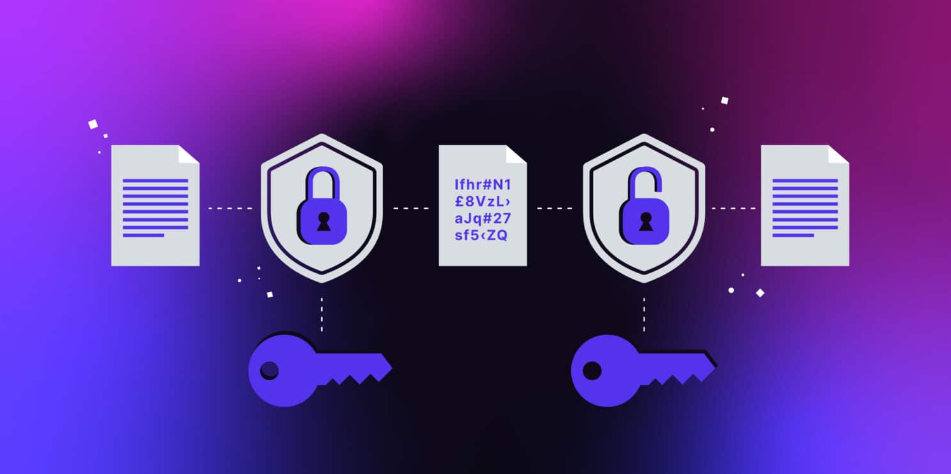Data security is more critical than ever, especially today when the world is digital. With cyber threats burgeoning, a survey of the trends that need to be adhered to by businesses and individuals to keep their data safe and secure, primarily when hosted on the web, is important. Among the best practices of data protection, encryption is among the most efficient.
Therefore, it becomes very vital to have encryption in hosting to curb the accessibility of any sensitive information relating to the organizations without the consent of the owners. This blog post will expound on what data encryption is, why it is important in hosting, and how it can assist in protecting your data.
Understanding Data Encryption and Its Basic Principles
At its essence, data encryption transforms readable data, known as plaintext, into an unreadable format called ciphertext. This transformation is performed with the assistance of sophisticated mathematical formulas and vice versa to enable the process to be carried out by only the person holding the decryption key to decipher the received message in the receiver’s ciphertext. It is basic in the defense of information against access by unauthorized personnel.
Encryption can be broadly categorized into symmetric and asymmetric encryption. Symmetric encryption involves using a single key for encryption and decryption, which necessitates secure key distribution but offers faster processing. In contrast, asymmetric encryption utilizes a pair of keys—a public key for encryption and a private key for decryption. It complicates the security since the owner is not required to share the private key, although, at the same time, it calls for more computation.
These encryption techniques are very important for protecting information, especially in a case where it is stored or transferred over the www. To fully comprehend its principles, it becomes significant to understand how encryption protects your content from the potential of cybercrime and hackers that make sure that your messages or data files remain personal and safe.
The Role of Encryption in Securing Hosted Data
Data encryption is crucial in hosting environments as it provides a formidable defense against unauthorized access and cyber threats. When data is encrypted, even if malicious actors gain access to the storage systems or data transmissions, they cannot decipher the information without the corresponding decryption key. This helps ensure that the information disclosed is correctly handled and used properly.
Encryption also brings out data integrity since no one can tamper with the data, namely by changing it. However, if there is a need to undergo certain modifications to the encrypted data, then the result upon decryption is that data would not be, which would give the administrator a probable signal of the breach or an integrity problem. This is particularly necessary to ensure that hosted applications and services remain both dependable and credible.
Additionally, encrypted data fosters trust among clients and customers. When individuals and businesses know their sensitive information, such as financial details or personal data, is encrypted, they are more likely to trust the hosting service. This act of trust is critical to creating and sustaining customer relationships where cyber security threats are a growing norm.
Last but not least, encryption aids in adherence to numerous policies and carries out legal and/or mandated procedures to ensure that hosting providers do not lose out on hefty fines and that they are in line with the latest norms regarding data protection, along with other related norms.
Common Encryption Standards and Protocols Used in Hosting
Several encryption standards and protocols ensure robust data security in hosting environments. Of these, the AES is considered highly secure and efficient and, therefore, widely implemented across organizations to secure significant information.
The other standard protocol is the Secure Sockets Layer (SSL), which effectively requires data to be encrypted while transmitting over the internet. SSL certificates are crucial to web applications to provide a secure connection on passing information between a user’s browser and the server possibly being intercepted by malicious third parties.
Transport Layer Security (TLS), which has evolved from SSL, is another critical protocol needed to secure data in transit. TLS guarantees the confidentiality and authenticity of exchanged data between two (or more) applications.
Finally, the Pretty Good Privacy (PGP) protocol is used on emails and files for encrypting them. PGP employs symmetric and asymmetric encryption for the provision of confidentiality and client authentication.
These standards and protocols have been set to ensure that the client’s data from the hosting providers is secure from other people and cybercriminals.
The Importance of End-to-End Encryption
End-user encrypted communication (E2EE) means data communication encryption starts from the sender device and extends to the recipient device, offering both the highest security and privacy. It should be used by hosting services when handling personal messages such as email or any other form of communication.
E2EE makes the data gravely encrypted in a manner that makes it only readable by the intended recipient, and this makes intermediaries, including the hosting provider, unable to access and read the data. It is essential for security measures to deny unauthorized access and protect the privacy of the user during their usage of the system.
By adopting E2EE, hosting services can enhance much of the information it processes for confidentiality and integrity. This also increases user confidence that their details remain safe and Sound at every stage of the process.
Legal and Compliance Aspects of Data Encryption in Hosting
Legal and regulatory frameworks increasingly mandate robust data encryption to protect sensitive information. For instance, the GDPR in the European Union requires organizations to implement adequate encryption measures to safeguard personal data. On the same note, the US Health Insurance Portability and Accountability Act (HIPAA) requires encryption to preserve patient’s health information. Noncompliance with these regulations leads to stiff penalties and reputational loss.
It also helps meet compliance when adopting Industry standards like The Payment Card Industry Data Security Standard (PCI DSS) which has protocols that mandate encryption of credit card data to prevent unauthorized access. When such performers adhere to these numerous regulatory demands, they serve legalities and, more importantly, guarantee their customer’s data security.
However, there are ways of going about it, as this involves the ability to prove compliance as well as the ability to show the customers that you are interested in protecting data through encryption. As a result, hosting providers need to recognize changes in the set legal standards and check that the encryption they use corresponds to the current legal rulings to prevent legal consequences.
Real-World Examples of Encryption Preventing Data Breaches
Encryption has proven worth in numerous real-world scenarios, preventing significant data breaches and saving organizations from potential disasters. For instance, consider the case of a global technology firm that faced a sophisticated cyberattack targeting its customer database.
The encrypted customer information remained secure and inaccessible despite the attackers breaching the server defenses. This layer of encryption played a significant role in avoiding the attack, and as such, the hackers did not extract any key information during the hack.
For instance, one organization used end-to-end encryption to protect the complete details of a patient’s healthcare. During an attempted violation, the criminals could not violate the confidentiality of patient information while receiving and analyzing medical data, preventing possible fines from regulators.
Moreover, in the financial sector, a major bank implemented robust encryption protocols for their online banking services. When a phishing campaign targeted their clients, the encrypted data ensured that even if login credentials were captured, the sensitive financial information remained protected, preventing unauthorized transactions and economic loss.
The following cases explain how the use of principles of encryption is relevant in the preservation of information in various categories of businesses. This helps organizations to manage the confidentiality of the information that they get or forward while at the same time enhancing the confidence of the client and the stakeholder. This is one of the corrective actions that is part of a good security plan and it proves the importance of encryption in this world.
Best Practices for Implementing Encryption in Hosting Services
Effective implementation of encryption in hosting services involves adhering to several key practices. To become an adequate first level of protection against increasing cyber threats, start with enhancing encryption algorithms and protocols. Policies especially require frequent audits and should be updated now and then for security reasons.
It is essential to manage the keys used to encrypt your data. Protect your encryption keys by storing them in hardware security modules (HSMs) or Key Management Services (KMSs). Some of them have improved systems for protecting keys, as well as how they are stored and managed.
Data encryption must be done, whether in transit or storage. Using this two-tier system, data is well protected within the process of transfer and storage.
That is why it is possible to integrate an additional layer of security in an organization by implementing a multi-factor authentication (MFA) system. MFA helps to avoid cases of unauthorized access even if encryption keys or passwords have been lost as the second form of identification is usually more complex.
Inform your staff members about encryption measures and the need always to secure data. Knowledge about encryption from your team helps in preventing the identification of any weakness in the setting and fixing the problem quickly.
Finally, it is possible to incorporate the options for automated monitoring and alerting for any suspicious activities that may be potentially dangerous for security to provide an immediate response.
Future Trends in Data Encryption and Hosting Security
In response to the increasing complexity of cyber threats, encryption technologies are also continuing to develop. Another relatively new trend is the development of post-quantum cryptography algorithms – those that would be impenetrable to attacks utilizing future quantum computers. This innovation will be of significant paramount importance in achieving longer-term data security.
Further, zero-trust architecture is emerging as a new model stating that any network connection must be validated irrespective of its source. This model adds encryption to the layers to secure data constantly besides monitoring and authentication. Due to the zero-trust model, it becomes possible to establish a secure hosting environment with the lowest likelihood of exposure to internal and external threats.
Some other new technologies that are still under development include homomorphic encryption technologies. This makes it possible to perform data computations without having any details leave the encrypted domain to the wrong parties. This capability can revolutionize how hosting services handle, use and transport data, and analysis can be done on the data itself without the physical media.
Last, the use of artificial intelligence or machine learning in encryption policies will likely add value to the current state of performance and competence in threat detection and prevention. These technologies can capture patterns and recognize such that leads to such, that prevent possible risks thus offering flexible and stylish security against current and future cyber security threats.




